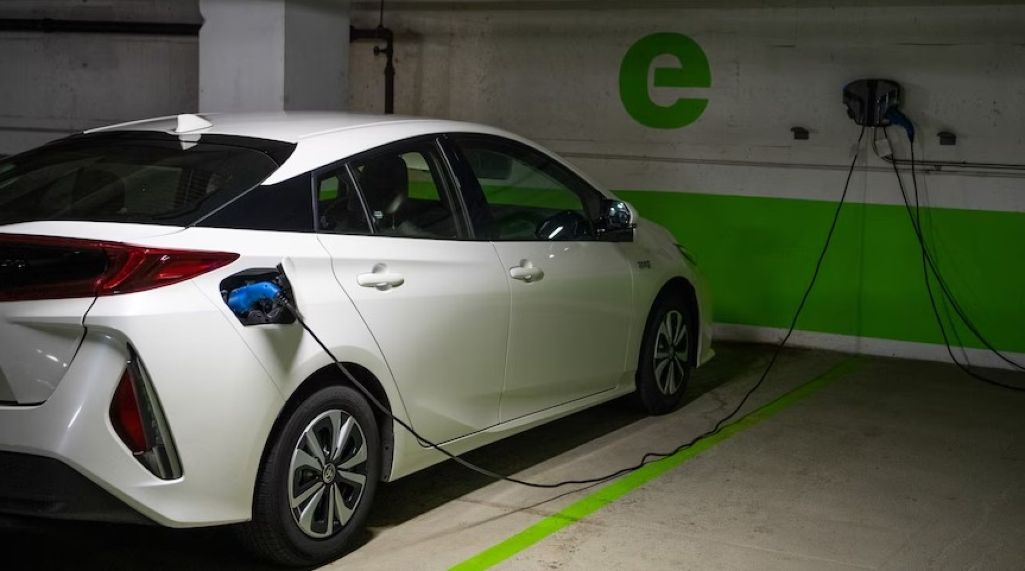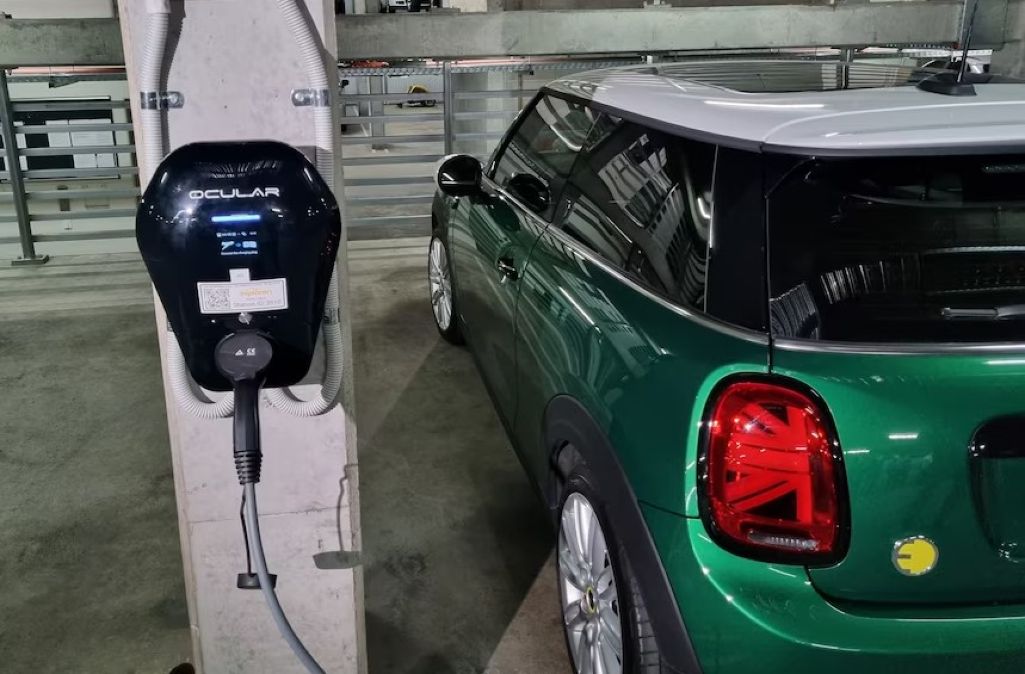Contrary to the laughable situation in Vietnam where many electric vehicle owners are not allowed to charge in buildings, many developed countries around the world have legalized the “right to charge” to ensure the interests of residents in condominiums.
Condominium owners accelerate infrastructure completion for electric charging
In response to the increasing demand of electric vehicle users, the national building code of Australia will soon introduce regulations for installing electric charging stations in all new buildings. Although the regulations are not in effect yet, a few days ago, the owner of a condominium building in the northern capital of Canberra proactively spent about $200,000 to upgrade the electrical infrastructure and conduits for the installation of electric vehicle charging points in the basement, according to ABC News.
Charging infrastructure being completed by property investors at the pace of electric vehicle growth (Photo: ABC News)
Sharing the reason, Neil Le Quesne – a representative of the building’s owners’ council, said: “Everyone wants to charge their car at home, whether it’s a bungalow or a condominium.”
In the United States, companies and condominium owners and homeowners are also urgently improving infrastructure for electric vehicle charging. According to Governing, although there are more than 2.2 million electric vehicles on US roads, public charging stations are not yet sufficient. A survey in October 2022 by Stalista showed that 77% of US consumers said they prefer to charge their cars at home rather than at public charging stations. Therefore, property owners are striving to “race” to complete infrastructure, ensuring that buildings are ready to install chargers for electric vehicle owners.
CBRE, one of the world’s largest real estate service companies headquartered in Dallas, recently launched a new department to help building owners identify suitable locations for charging stations as well as help plan, install, and maintain equipment. The company specializing in electric vehicle charging stations, Refuel Electric Solutions (REVS), is also working with real estate businesses to install charging stations. “Housing units that do not provide tenants with the option of charging cars cannot be profitable. Every housing unit in the United States will need electric vehicle charging equipment,” said David Aaronson, CEO of REVS.
Mandatory laws and regulations on condominium charging stations around the world
To solve the problem of charging electric vehicles at home, many countries have issued regulations related to building charging stations right in condominium buildings that are densely populated, and some places even have laws on the “right to charge electric vehicles”.
“Right to charge electric vehicles” enacted in many countries around the world (Photo: Motortrend)
For example, in the United States, in May 2022, the state of Connecticut issued mandatory standards for building electric vehicle charging stations, which took effect from January 1, 2023. Accordingly, new buildings in the state with costs over $100,000 must install at least 20% EV Level 2 charging stations in their parking spaces. Commercial or new condominium buildings with at least 30 parking spaces must be capable of supporting 10% fast charging stations in that space.
To promote the installation of charging stations in condominiums, more than 10 states in the US have passed Right To Charge laws. The laws vary by state, but they all prohibit building owners and homeowners associations from preventing residents from installing and using electric vehicle chargers in their condominiums, while also specifying the requirements for installing chargers according to the specified standards.
For example, Illinois’ electric vehicle charging law enacted in June 2023 requires 100% of parking spaces in new houses and buildings with multiple apartments to have ready-to-install electric vehicle charging infrastructure. The states of California, Colorado, Florida, Hawaii, Maryland, New Jersey, New York, Oregon, Virginia, and cities such as Seattle and Washington, D.C. have also enacted laws on the right to charge, with California, the leader in electric vehicle ownership, passing a civil law in 2014 that applies to both owner-occupied and tenant-occupied buildings, allowing charging equipment to be installed “in owner-occupied dwellings or in a parking lot or common area”.
In Europe, the second largest electric vehicle market in the world, the United Kingdom has issued amended building regulations on the installation of electric vehicle charging points or cables, effective from June 2022. It includes new requirements such as every new residential area must have charging points for electric vehicles; residential areas with more than 10 parking spaces must have at least one electric vehicle charging station, etc. In Norway, the “electric vehicle capital” of Europe, since 2016, the Ministry of Transport and Communications has issued regulations requiring a minimum of 6% of electric vehicle charging areas in new buildings and parking lots.
Tokyo, Japan implements a requirement that all new condominiums must be equipped with electric vehicle charging stations (Photo: ABC News)
In Asia, while slower than Western countries in the electric vehicle race, since 2022, Japan has taken determined actions to accelerate the coverage of charging stations in residential areas. Tokyo – the first metropolis in Japan will apply a mandatory regulation that all new condominiums must be equipped with a minimum of 20% parking spaces equivalent to electric vehicle charging points from 2025, with a support package of more than $29 million. By the end of 2024, Tokyo authorities hope to have an additional 3,100 charging points installed in residential buildings, 15 times more than in 2022.
The trend of bringing charging stations into condominiums is also being encouraged in Australia, amid efforts to promote the development of the electric vehicle market. In mid-September, the New South Wales state government announced a $260 million investment plan, prioritizing the development of charging station infrastructure on roads, condominiums, etc., to promote the electric vehicle trend and achieve the Net Zero emission target soon.
TH (Tuoitrethudo)
According to ABC News, The Straits Times, Motor Trend, Statista, The Conversation












































